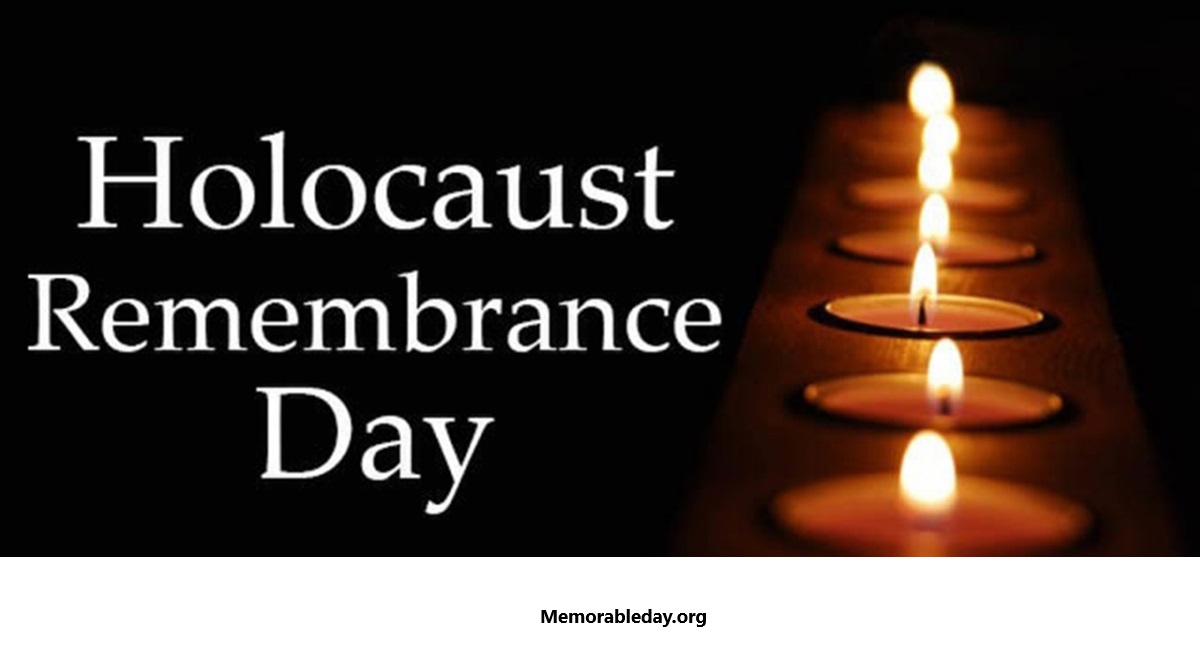
Every year, May 5th is observed as a Day of Remembrance to honor and reflect on the experiences of those affected by genocide and atrocities throughout history. In the United States, this day is part of a broader observance known as the Days of Remembrance, which commemorates the victims and survivors of the Holocaust. The purpose of this day is not only to remember those who were lost but also to reaffirm our commitment to preventing such atrocities from ever happening again.
The Days of Remembrance serves as a powerful reminder to reflect on history, learn from past mistakes, and promote peace and tolerance. Whether through memorial services, educational events, or moments of quiet reflection, the observance encourages people worldwide to honor the resilience of survivors and keep their stories alive for future generations.
History of Days of Remembrance
The Days of Remembrance was established by the United States Congress in 1980 as a national week-long commemoration of the Holocaust. The U.S. Holocaust Memorial Museum was later tasked with leading this observance and organizing official ceremonies. May 5th often falls within the Days of Remembrance Week, which is observed during the week of Yom HaShoah—the Jewish Holocaust Remembrance Day.
The significance of these observances lies in their role as a tool for educating the public about the Holocaust and honoring the memory of those who perished. Each year, different themes and stories are highlighted to help ensure the lessons of the past remain relevant in today’s world.
When is Days of Remembrance Celebrated?
May 5th is observed as part of the Days of Remembrance, typically falling during the week of Yom HaShoah (which varies according to the Hebrew calendar). While specific ceremonies may differ, the central purpose remains consistent: to honor the victims and survivors of the Holocaust and inspire people to stand against hatred and intolerance.
How Do We Celebrate Days of Remembrance?
Observing the Days of Remembrance can take many forms, from formal memorial services to personal acts of remembrance. Here are some ways you can participate:
- Attend a Memorial Service: Many communities and organizations host remembrance events, including readings, candle-lighting ceremonies, and survivor testimonies.
- Visit a Holocaust Museum or Memorial: Pay your respects by visiting places dedicated to Holocaust remembrance and education.
- Read Survivor Stories: Learn about the personal experiences of Holocaust survivors through books, documentaries, or online resources.
- Light a Candle: In a simple act of remembrance, light a candle to honor the lives lost and reflect on the lessons of history.
- Share on Social Media: Use #DaysOfRemembrance to raise awareness and encourage others to remember.
- Teach and Learn: Take time to educate younger generations about the Holocaust and the importance of tolerance and human rights.
Celebrating the Days of Remembrance is a chance to honor the past while looking toward a future free from hatred and prejudice.
Why Is Days of Remembrance Celebrated?
The Days of Remembrance is celebrated to honor the memory of those who suffered and perished in the Holocaust and to ensure that their stories are never forgotten. It’s a solemn occasion meant to inspire reflection, remembrance, and education. By observing this day, we not only commemorate the past but also commit ourselves to building a more tolerant and just society.
Furthermore, it’s a call to action—reminding us of the importance of speaking out against hatred and bigotry wherever it exists. Through remembrance, we strengthen our resolve to protect human dignity and uphold the values of peace, equality, and justice.
Days of Remembrance Quotes
- “To forget the dead would be akin to killing them a second time.” — Elie Wiesel
- “For the dead and the living, we must bear witness.” — Elie Wiesel
- “The Holocaust teaches us the depths of human cruelty, but also the power of human resilience.”
- “Memory is a way of holding onto the things you love, the things you are, the things you never want to lose.”
- “Those who cannot remember the past are condemned to repeat it.” — George Santayana
- “Remembrance is the highest form of respect.”
- “We remember so that future generations will never forget.”
- “In darkness, remembrance is our light.”
- “Hope lives in the stories we remember and share.”
- “By remembering, we honor the strength of those who endured.”
- “A single candle can light a thousand memories.”
- “History, when remembered, becomes a lesson for peace.”
- “Silence in the face of injustice is complicity.”
- “Through remembrance, we heal.”
- “The voices of the past must echo in our hearts forever.”
- “To remember is to protect the future.”
- “History must be remembered, not rewritten.”
- “Each life lost is a story that must be told.”
- “We honor through remembrance and action.”
- “Remembrance is the bridge between sorrow and hope.”
Days of Remembrance Wishes
- “May we never forget the lessons of the past. Honor and remember.”
- “Wishing you strength and peace on this Day of Remembrance.”
- “May the memories of those we honor guide us toward a brighter future.”
- “On this solemn day, we remember with heavy hearts and hopeful spirits.”
- “Let us remember, reflect, and strive for a world without hatred.”
- “Wishing you a meaningful Day of Remembrance.”
- “May we always remember the strength of those who endured.”
- “Honor the past, embrace peace for the future.”
- “A day to remember and reflect on the power of resilience.”
- “May the stories of the past inspire us to act with kindness and compassion.”
In conclusion, the Days of Remembrance on May 5th is a significant observance that urges us to reflect on history, honor those who were lost, and stand against intolerance. By remembering, we preserve the past and protect the future. This day reminds us that each act of remembrance carries a powerful message of hope and humanity.
Let’s honor this day by sharing stories, attending memorials, and educating others so that the voices of those affected are never silenced. Remembering is not just about the past—it’s about building a more just and compassionate world for the future.
Days of Remembrance FAQs
1. Why is Days of Remembrance observed on May 5th?
May 5th falls within the Days of Remembrance week and often coincides with Yom HaShoah, the Jewish Holocaust Remembrance Day, making it a fitting time for reflection and commemoration.
2. Who established Days of Remembrance?
The U.S. Congress established the Days of Remembrance in 1980 to commemorate the Holocaust and honor its victims and survivors.
3. How can I participate in Days of Remembrance?
You can attend memorial services, read survivor stories, visit museums, or light a candle in remembrance. Sharing educational resources and raising awareness on social media is another way to participate.
4. What is the purpose of Days of Remembrance?
Its purpose is to honor the memory of Holocaust victims, educate future generations, and promote tolerance, peace, and human dignity.
5. Why is it important to remember the Holocaust?
Remembering the Holocaust is essential to ensure that its lessons are not forgotten. It reminds us of the dangers of hatred, intolerance, and indifference, inspiring us to stand against injustice.






